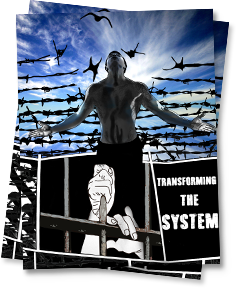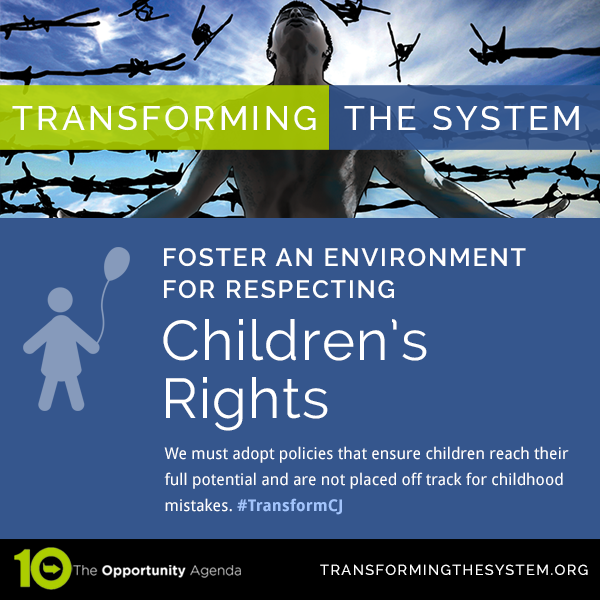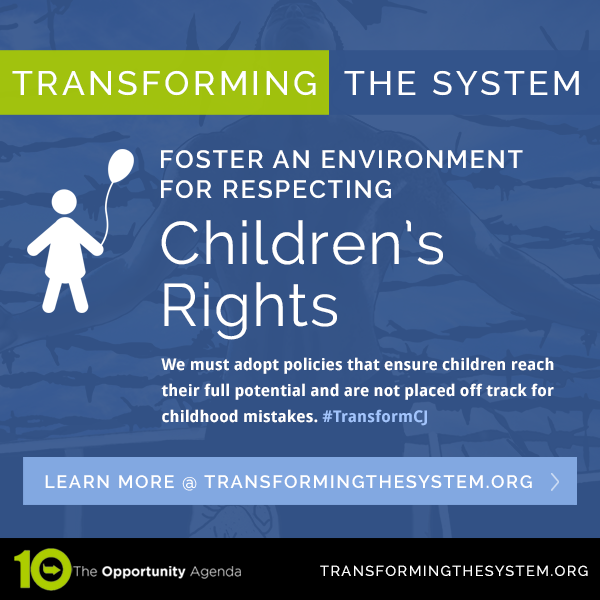Keeping Families Together
Children and parents thrive when they form stable relationships, but the carceral state not only deprives our communities of its members, it deprives children of their parents, often even beyond the length of the incarceration. With more than ten percent of all youths, 7 million children, with a parent that is incarcerated, on parole, or on probation, children and families are the forgotten victims of mass incarceration. The incarceration of a parent disrupts invaluable familial supports, places new burdens on government services, and carries the trauma and the stigma of incarceration to a new generation. The physical walls of the prison are only one man-made construct that separates children and parents. Children are often prevented from maintaining a relationship with an incarcerated parent by great distances without public transit options, limited number of calls or letters allowed per incarcerated person, and high-costs for phone calls imposed by telephone companies or the prisons themselves. Indeed, some prisons have banned in-person visiting altogether, relying instead on video calls with exorbitant fees. While their parent is incarcerated, especially where that parent is their sole custodian, a child undergoes financial, emotional, and physical upheaval. Still, even after the formerly incarcerated parent is released, parent and child face often insurmountable hurdles to reunification, especially where a parent is unable to secure employment and housing based on policies that restrict the opportunities of formerly incarcerated individuals.
To help create a society where every child can thrive, there needs to be a concerted effort to facilitate the relationship between system-involved parents and their children. The most effective way to create healthy families is by dramatically reducing the use of incarceration, relying instead on community-based supervision where criminal consequences are necessary. At any stage of the criminal justice process, it should be imperative to facilitate the relationship between parents and their children and unification should be the goal of the all system actors.
To help create healthy families, Congress and state legislatures should pass legislation that:
- Requires prosecutors and judges to consider the collateral consequences of incarceration on the family of the defendant in charging decisions during sentencing, including the collateral effects on the defendant’s dependents;
- Invests in community based alternatives to incarceration, particularly ones that help maintain or strengthen the bond between the individual and their family and community;
- Bans the use of fees within prison that hinder communication between incarcerated individuals and their families;
- Increase the opportunities for incarcerated people to build and maintain relationships with children by making child-friendly rooms or facilities for prolonged contact with children in existing prisons, in which parents can interact with their children in a setting appropriate to the development and needs of their children. This option should not require the investment of resources in new prisons, but altering existing prisons to support family relationships;
- Creates programs that provide easily-accessible, affordable transportation to prisons for family members of incarcerated individuals;
- Provides opportunities for imprisoned persons to maintain contact with family and other support networks by establishing an office tasked with maintaining family affairs;
- Requires prison officials to assign incarcerated individuals to prisons near their support networks;
- Repeals post-conviction consequences that hamper successful re-entry, including barriers to voting, employment, jury participation, and social services;
- Prohibits policies that ban formerly incarcerated individuals from obtaining public housing or jeopardize the public housing of families who allow a formerly incarcerated family member to stay with them.
- Institutes graduated re-entry and vocational programs, which provide structured transitional services to individuals within a year of release, such as the Montgomery Pre-Release Center that focuses on securing a job prior to release;
- Establishes incarceration and post-incarceration programs specifically devoted to educating incarcerated and previously incarcerated persons. These education programs should include vocational programs intended to provide job skills;
- Strengthens a formerly incarcerated individual’s legal ability to regain custody of their child after their release by encourages policies similar to the Adoption and Safe Families Act (ASFA) Expanded Discretion Law, which helps protect the parental rights of incarcerated parents with children in foster care.
- Where they exist, repeals amendments that relieve states of the duty to reunite children with their natural parents and allow them to independently initiate termination of parental rights due to the incarceration of the parent.
- Encourages the collaboration of probate, family, and criminal courts prior to an individual’s release.
The Department of Justice should adopt federal guidelines that advise all prosecutors’ offices on best practices for incorporating diversion programs into their offices’ work, particularly programs that allow individuals to stay in their communities and maintain ties with family.




